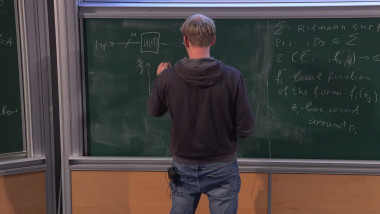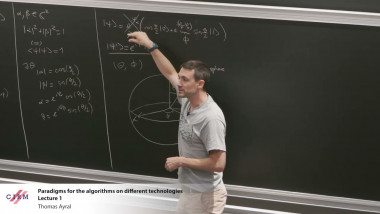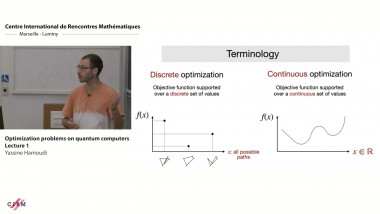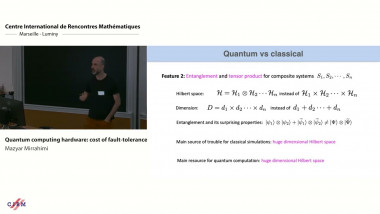Apparaît dans la collection : 2024 - T1 - WS2 - Driven quantum systems
Quantum technologies are all about controlling quantum systems. Control is the prerequisite to exploit the two essential elements of quantum physics, non-locality and coherence, for practical applications. This currently faces two major challenges --- to preserve the relevant non-classical features at the level of device operation and to scale the devices up in size.
Control theory provides tools for tackling both challenges. On the one hand, controllability analysis aims at answering the question which control targets, states or operations, are accessible. On the other hand, control theory provides methods to derive the actual control fields that implement the desired dynamics. I will discuss how to leverage control theory to minimize resources for quantum devices and thus ease requirements towards scaling up their size.
In particular, I will show how controllability analysis allows us to identify the minimum number of local controls required to implement universal quantum computing in an array of coupled qubits. Moreover, I will provide examples for the control of open quantum systems where the environment leads to decoherence but also opens new prospects for control. I will discuss examples for both strategies, with practical applications in Rydberg atoms, trapped ions, and superconducting circuits.
















